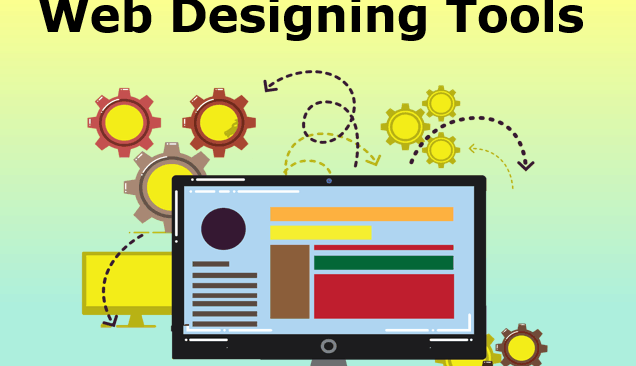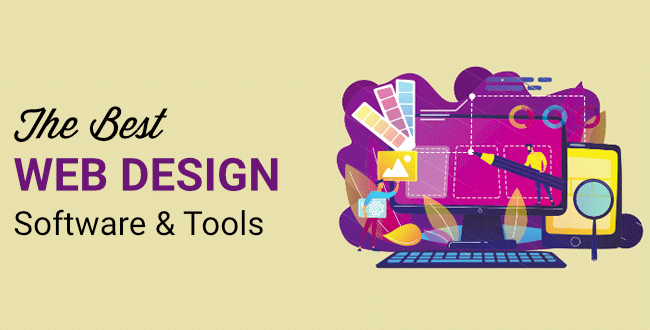Web design is a dynamic field that combines creativity and technicality to craft visually appealing and functional websites. In this article, we will dive into the world of web design tools and software, essential companions for designers aiming to build remarkable online experiences.

The Foundation: Text Editors
Text editors serve as the cornerstone for web development. They offer a clean interface and handy features, such as code highlighting and auto-completion, that make coding efficient.
Graphic Design Software
Adobe Photoshop
Adobe Photoshop is a versatile tool for creating and editing images. It’s indispensable for designing website graphics, including logos, banners, and background images. Photoshop simplifies tasks like resizing, cropping, and enhancing images to fit seamlessly into web layouts.
Adobe Illustrator
For vector-based graphics like icons and illustrations, Adobe Illustrator shines. It allows designers to create scalable and high-quality graphics that retain their clarity on various screen sizes. Illustrator’s precise tools are invaluable for crafting intricate elements.
Layout and Prototyping Tools
Adobe XD
Adobe XD streamlines the design and prototyping process. It’s a user-friendly platform for creating wireframes, and interactive prototypes and designing the overall user experience. With XD, designers can visualize how a website will function before development begins.
Sketch
Sketch is a popular choice among macOS users. It excels in user interface (UI) and user experience (UX) design, offering a range of plugins and integrations for efficient workflow. Sketch’s artboard-based approach makes it easy to create responsive designs.
Version Control Systems (VCS)
Git
Git is the go-to version control system for web developers. It allows teams to collaborate seamlessly, track changes, and revert to previous versions if needed. Platforms like GitHub and GitLab provide hosting and collaboration features for Git repositories.
Content Management Systems (CMS)
WordPress
WordPress is the world’s leading CMS, powering a significant portion of websites on the internet. Its user-friendly interface and vast ecosystem of themes and plugins simplify website creation and management. Web designers often customize WordPress themes to suit their clients’ needs.
Browser Development Tools
DevTools
Modern browsers come equipped with built-in development tools, such as Chrome DevTools and Firefox Developer Tools. These tools allow designers and developers to inspect web elements, debug code, and test responsive designs directly within the browser.
Collaboration and Communication Tools
Slack
Effective communication is crucial in web design projects. Slack provides real-time messaging, file sharing, and team collaboration features that facilitate seamless communication among designers, developers, and clients.
Asana
Project management tools like Asana help teams organize tasks, set deadlines, and track progress.
Website Builders
Wix
Website builders like Wix are user-friendly platforms for creating websites without extensive coding knowledge. They offer templates and drag-and-drop interfaces that make it easy to design and publish websites quickly.
Testing and Debugging Tools
Google PageSpeed Insights
Page speed is a critical factor in user experience and search engine ranking. Google PageSpeed Insights analyzes website performance and provides suggestions for optimization.
BrowserStack
Testing websites across various browsers and devices is essential to ensure compatibility. BrowserStack allows designers to test their websites on multiple browsers without needing access to physical devices.
The Evolving Landscape: Web Design Trends
The field of web design is constantly evolving, with new tools and software emerging to keep pace with changing technology and design trends. Staying updated on the latest tools and techniques is essential for web designers to deliver modern and user-friendly websites.
Conclusion
In conclusion, web design tools and software are the bedrock of modern web development. They empower designers to bring their creative visions to life, streamline workflows, and create exceptional online experiences. Whether you’re a seasoned professional or a novice designer, these tools are your trusted companions in the ever-evolving world of web design, enabling you to craft websites that captivate and engage users.

